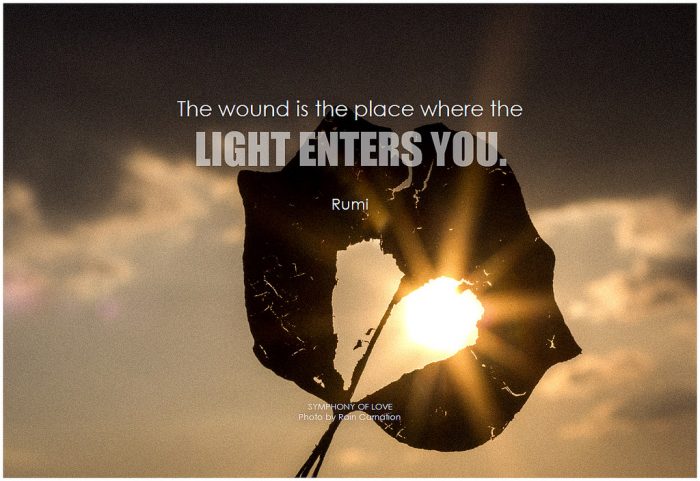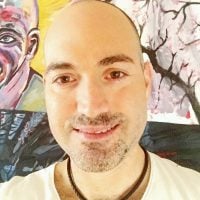
We live in a state of constant flux, yet we suffer with dreams of permanence.
We are like flowers who don’t know we are okay, so constantly search for external colour and reach for unreachable dreams. We are like blossoms that never see our own blossoming.
We are too busy looking outside of ourselves. We never contemplate in silence our true nature.
What is the nature of beauty? Is it veneer—or a quality of depth far beyond any surface level?
If you look closely at a flower, you will experience a deep love, a deep peace, and a deep acceptance of its essence. This is our nature as human beings. Flowers of the living breath, flowers of God, flowers of everlasting love. Inherently, we are goodness experiencing itself—it is only our experiences and environments that withdraw us from our true nature.
What is the nature of suffering—does it belong to the nature of the thing made to suffer?
The nature of our life is influenced by a myriad of factors from the environment in which we live, our experiences, to the intrinsic nature of an individual. The concept of moksha—or liberation—is the salvation from the maya (illusion) into self-actualisation and self-realisation.
Liberty is always within reach, corresponding to the limitlessness of human experience. The warmth of being alive, of being an emotional being undergoing a variety of experiences, is essential to our unfolding. Moksha is not a cold experience, it is a living experience.
First, we must face and surrender our fears, and then we will grow beyond the “limited self.” Self-love is a perpetual quality that develops our self-worth and understanding. If we are not compassionate towards ourselves, then we do not understand compassion. If we are not loving towards ourselves, then we do not understand love.
Awakening from the trance of unworthiness is the gateway to living freely and achieving our life-purpose.
Growing up in South Africa, I felt like a stranger in a strange land. All around me people were going about their lives, and I was perpetually wondering where I belonged in the world. It was to be one of the themes of my life, understanding constructive freedom, questioning, and reflecting on the nature of life.
I was also caught up in the maelstrom of history. Events around us seemed so real and important. From racial disharmony and apartheid, to the struggle against apartheid, and ultimately, its removal as official government policy—I went through many changes.
As the myriad of external shifts unfolded, it was more notable to feel the shifts—or lack thereof—in people’s hearts. As a child, how is one to identify or misidentify with collective racism and racist policies? Growing up in an elitist culture, is one able to feel the suffering of the underprivileged? As an empath, how does one self-protect when around us there is discord?
As the country went through its trauma, and started to rebuild, it became clear that the problems were far more deep-seated than mere policy. In most cases, the elitism of the past is ongoing, and has continued to arrest the country’s advancement.
Sadly, unworthiness is so deep-rooted in the culture of the majority, it continues to cause a crippling pain. What surprised me more, was to realise that unworthiness is at the root of the privileged class, who economically tower above their brethren. Why else would they hold on to their wealth with such terror in their souls, and inflict suffering on the whole society by hoarding wealth?
The country is not suffering just because the poor suffer. It is suffering also because the rich suffer. Carl Jung brings this sharply into focus if one applies this idea to the collective, “The unfaced and unfelt parts of our psyche are the source of all neurosis and suffering.”
The rejected parts of a society cause a collective suffering in the ethos or matrix of the community.
Rumi encourages us to face this closeted wound, humanity’s shadow as individuals, “Don’t turn away. Keep your eyes on the bandaged place. That’s where the light enters you.”
At the deepest level, we are Source energy experiencing and becoming conscious of itself. However, as human beings, our greatest obstacle to inner peace is self-doubt and a lack of self-love. I speak to many people who believe themselves small, and sometimes wish to disappear. That is not what we are here to be and to do. We are light warriors as well as luminous beings.
It is the abandoned and rejected parts of ourselves that prevent us from feeling complete. They are in essence illusory, yet our belief in them animates them. It is our story that keeps them alive.
The first step to our liberation is to have right perception of whom and what we are, and then to accept ourselves.
“The curious paradox is when I can accept myself just as I am, then I can change.” ~ Carl Rogers
The shadows are alive within, because we do not wish to, or are not ready to face them. When we face them, we can slay the dragon. The dragon just asks for our love, and in our love, it melts. God, as the essence of love, is alive within us. The divine is not separate and never was separate.
When we love unconditionally from the heart, we see all the misperceptions, and realise that love is alive within us, and that means we are beautiful as we are. It does not mean that we cannot improve; yet when we come from a whole and accepting space, it is the wellspring for future possibilities.
Embracing metta (loving-kindness) for all beings, begins with ourselves.
Loving and accepting all that we are, we liberate ourselves from the torment of not believing in or valuing ourselves.
That is our freedom calling, and our invitation to experience more than we have allowed ourselves to before.
~
Author: David Zenon Starlyte
Image: Author’s own; Flickr
Editor: Lieselle Davidson








Read 0 comments and reply